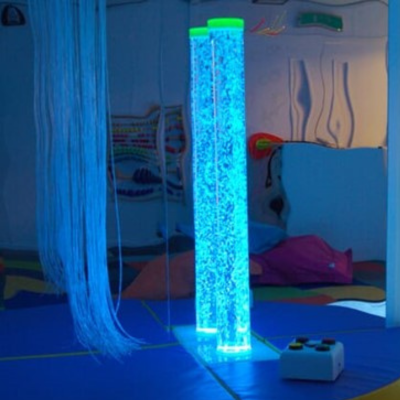Get exclusive deals you won't find anywhere else straight to your inbox.

The Value Of Sensory Rooms At Sports Venues
In this blog we discuss the value of sensory rooms at sports venues. Sensory rooms at sports venues offer a powerful and inclusive experience for fans and attendees, particularly for individuals with sensory sensitivities. This could be individuals on the autism spectrum or with sensory processing disorders. These rooms provide a controlled and comfortable environment that can significantly enhance the overall experience for fans.
There are many reasons to explain the value of sensory rooms at sports venues, such as:
Inclusivity
Sensory rooms promote inclusivity by providing a space where individuals with sensory sensitivities can enjoy sporting events without feeling overwhelmed by the noise, lights, and crowds commonly found in sports venues. This allows a broader range of people to participate in and enjoy live sports.
Reducing Sensory Overload
Sensory rooms are designed to be calming and soothing environments. They typically have dim lighting, soft furnishings, and sensory-friendly decor. These elements help reduce sensory overload for individuals who may become overwhelmed by the sights and sounds of a game.
Safe Retreat
For individuals who may become anxious or distressed in crowded or stimulating environments, sensory rooms offer a safe and private retreat. They provide a space where individuals can take a break, regroup, and then return to the event when they are ready.
Family-Friendly
Sensory rooms are often family-friendly spaces. Families with members who have sensory sensitivities can attend events together, knowing they have a dedicated space to support their loved ones while still enjoying the game.
Enhanced Enjoyment
Sensory rooms enhance the overall enjoyment of the event for individuals who might otherwise avoid attending sports games due to sensory challenges. By providing a sensory-friendly space, sports venues can encourage attendance and foster a positive fan experience.
Education and Awareness
Sensory rooms also help raise awareness about sensory sensitivities and neurodiversity. They demonstrate a commitment to inclusivity and promote understanding among all fans.
Community Engagement
Sports venues that offer sensory rooms often engage with the local community, disability organizations, and advocacy groups. These groups help to ensure that the rooms are designed and equipped effectively. This fosters a sense of community involvement and support.
Compliance with Accessibility Laws
In some regions, offering sensory-inclusive services, including sensory rooms, may be a legal requirement under accessibility laws and regulations.
Positive Public Relations
Providing sensory rooms is seen as a positive gesture by the sports venue and can generate positive publicity and goodwill. It can also attract a more diverse range of fans, including those who may not have attended events in the past due to sensory concerns.
Economic Benefits
By attracting a wider range of attendees, including families with children or adults with sensory sensitivities, sports venues can potentially increase ticket sales, merchandise purchases, and concessions revenue.
Conclusion
Sensory rooms at sports venues demonstrate a commitment to inclusivity, provide a safe and enjoyable experience for individuals with sensory sensitivities, and contribute to the overall success and positive image of the venue.

